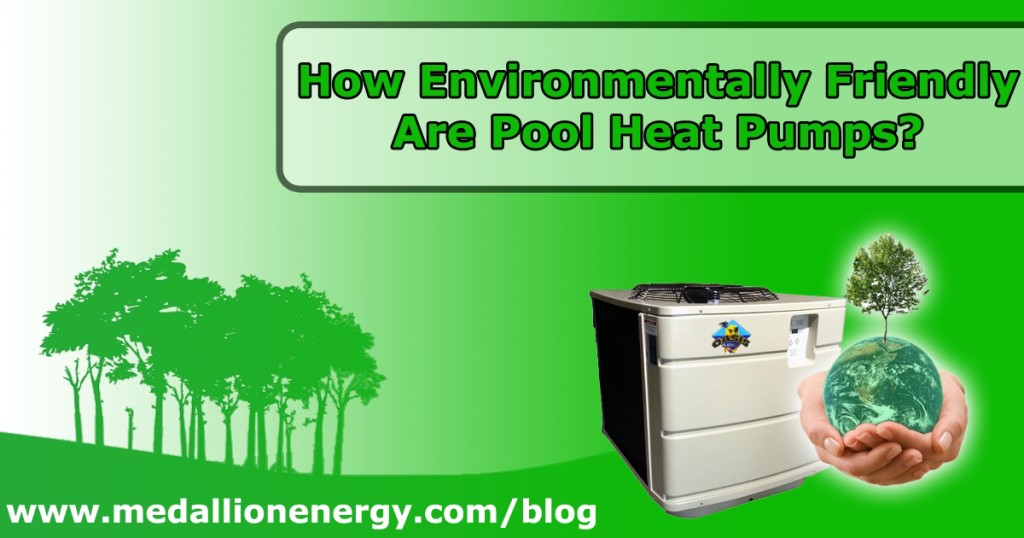If you’re looking for an environmentally friendly pool heater, look no further than pool heat pumps
Find out why in this post…
How environmentally friendly is a swimming pool heat pump?
As we welcome more technology and machinery into our lives, the concern of environmental friendliness grows increasingly relevant. With issues like climate change, pollution, and resource depletion, being environmentally friendly is much more than a trend. It’s a necessity for keeping the planet we call home, healthy and green.
As a pool owner, there’s plenty you can do to contribute. Choosing an environmentally friendly pool heater, like a pool heat pump is one major contribution. Pool heat pumps are not only energy efficient but perform optimally without even leaving traces of a carbon footprint.
But we’ll get into all that more in these next sections.
What does environmentally friendly mean?
The phrase “environmentally friendly” implies a minimal to nonexistent impact upon the ecosystem.
So, let’s focus on energy efficiency and environmental impact. Understanding how a product consumes and uses energy helps us to gauge how environmentally friendly it is.
Energy Efficiency


 The more effectively a device uses the energy it consumes to operate, the more energy efficient it is. In the world of pool heaters, COPs (Coefficients of Performance) specifically measure the ratio of energy use to output.
The more effectively a device uses the energy it consumes to operate, the more energy efficient it is. In the world of pool heaters, COPs (Coefficients of Performance) specifically measure the ratio of energy use to output.
[Learn more about Coefficients of Performance]
Pool heat pumps like the Oasis Platinum, feature a COP of 6.0. This is exceptional in terms of energy efficiency because it means that for every unit of energy consumed, six units are produced (in the form of heat). The higher a pool heater’s COP, the more energy it converts to heat, and the less you pay to heat your pool every month.
As a point of reference, electric resistance and gas pool heaters feature an estimated COP below 1.0. Meaning that it’s much more expensive to heat your pool with gas or electric resistance. But to better understand the differences between the pool heater types, check out this pool heater comparison.
On the other hand, pool heat pumps utilize a minimal amount of electricity since they harvest heat from the environment rather than generate it.
[Learn how pool heat pumps work]
Environmental Impact
Gas pool heaters offer fast heating, there’s no doubting that. But they also release harmful byproducts into the environment. Making them the least environmentally friendly of all pool heating options. With a considerably high rate of C02 emissions via gas combustion, gas pool heaters are typically used in small spas, or as backup units to pool heat pumps.
However, that’s not to say that gas pool heaters are the only type of heater capable of being classified as non-environmentally friendly. Some older pool heat pumps use HCFC-22 (also known as R-22) refrigerant, a common yet especially harmful refrigerant choice. R-22 leaks are one of the biggest contributors to ozone depletion.
Thankfully, newer pool heat pumps have replaced R-22 refrigerant with a 100% environmentally friendly and economical alternative:
R410A refrigerant.
This refrigerant can be found in models like the Oasis Platinum and work perfectly with compression technology to safely and effectively produce heat.
The Environment and You
Ultimately, which pool heating option you chose is your decision as a pool owner. For most, cost effectiveness and energy efficiency are major factors when making a purchase, hence why pool heat pumps are always an excellent choice. But everyone’s situation is different
Want to better understand the differences between gas, electric resistance, solar, and pool heat pumps? Check out this pool heater comparison.




